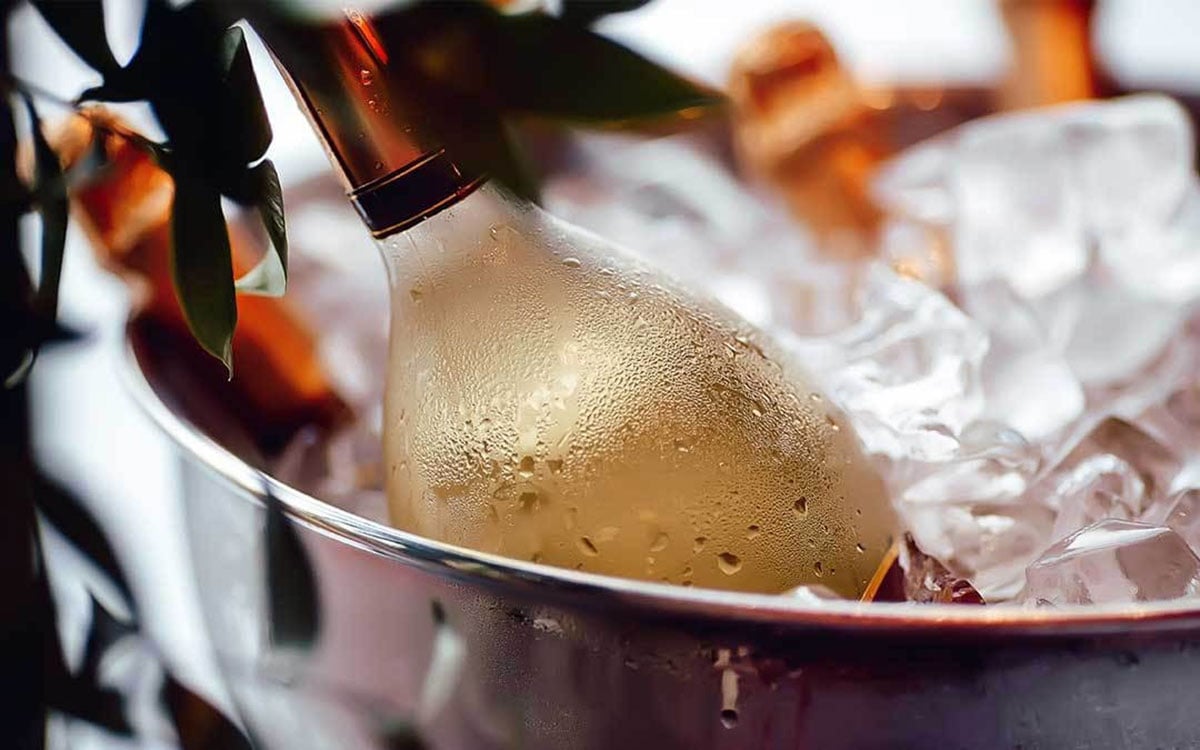

We all know that if you put a bottle of liquor into the freezer, it won’t freeze due to the alcohol content. But what happens if you put wine in the freezer… will the wine freeze?
The short answer to that question is, yes, your bottle of wine can freeze if you leave it at extremely cold temperatures for long periods of time. But why does this happen? Does it ruin the wine? Are there any reasons why someone would want to freeze a bottle of wine?
Let’s take a look at the reasons why wine freezes when kept at cold temperatures and what it actually does to the wine itself.
Why Does Wine Freeze?
The main reason that wine freezes, while other spirits, or liquor, do not, is because of the alcohol content. The higher the alcohol content the lower the temperature needs to be in order to freeze.
So, while most people believe that spirits or liquors will not freeze, that’s technically not true. If you expose the liquid to a low enough temperature, then it is possible to freeze a bottle of liquor. However, most residential freezers will not reach the temperatures needed to freeze your bottle of vodka, so most people just assume that it’s not possible.
Wine, however, freezes at a much lower temperature due to the lower alcohol content. With 12.5% being the average alcohol content in a bottle of wine, this would mean that a bottle of wine would freeze at a temperature of around 22-degrees Fahrenheit. Which is definitely within the realm of residential freezers.
Does Freezing Wine Ruin It?
In most circumstances, freezing your unopened wine won’t change the flavor profile all that much. The biggest threat to the taste of wine is oxidation that comes from being exposed to air. So if you freeze a sealed bottle of wine and it doesn’t break or the cork doesn’t pop out of the bottle, then you shouldn’t notice a huge difference in the flavor once it’s thawed and poured.
We don’t recommend freezing wine for the sake of drinking it later as that’s not the way the winemaker intended it to be consumed. There are, however, some cases where frozen wine may be beneficial, like cooking.
When Is Freezing Wine Appropriate?
When cooking with wine, you’re usually not using your best cabernet in your dish, so freezing a partially opened bottle of old red wine would be ideal for cooking with.
Just remember, when wine freezes, just like other liquids, it will expand. You’ll want to make sure that the wine in the freezer is not in the original bottle as it could break. We recommend pouring it into freezer bags or using an ice cube tray.
Ice cube trays are a great way to freeze wine that you intend to use for cooking, as you can pop out individual cubes of wine that generally measure out to be an ounce of liquid.
Best Ways to Chill Wine Without Freezing
If the end goal is to keep your wine as cold as possible while drinking, and you don’t want to risk breaking a bottle of wine in the freezer, there are some alternative ways to ensure your bottle stays crisp until the end.
Traditionally white wine is served chilled while red wine is served at room temperature or slightly chilled. In general, though, wine is not intended to be frozen.
If you’re looking to keep your wine chilled to the last drop, and you don’t want to dilute the glass with ice, then investing in a nice wine ice bucket or chiller is a great way to go.
Some types of wine chillers don’t require any actual ice and instead use insulated stainless steel to keep your bottle cold. Normal ice buckets will require you to fill the bucket with water and ice in order to keep the wine cold.
If you’re looking for a more creative way to keep your glass of wine cold, freeze some grapes. Once the grapes are frozen you can use them in your glass of wine like ice cubes and they will keep your wine cold without diluting the flavor when they start to thaw. Plus, they look fancy.
Whichever method you choose to keep your wine cold, we recommend not just throwing a bottle of wine in the freezer for long periods of time. You run the risk of the bottle breaking and once thawed, the wine flavor profile may change from what the winemaker originally intended. If you plan on saving some wine to cook with at a later date, then freezing it is a great option. Just be careful of what sort of container you freeze it in as you don’t want to be cleaning wine and glass out of your freezer.
